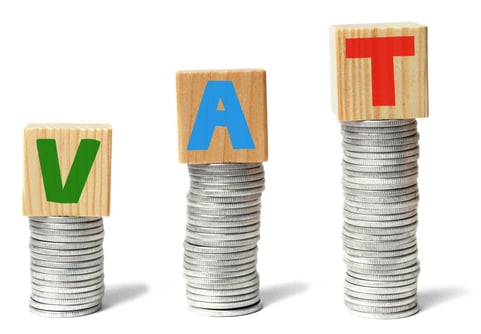BLOG
No More VAT Nightmares - Top Tips For Paying Your Bill On Time
For many people, VAT is something you pay on services and products (and maybe the odd pasty or two). For others, particularly business owners, VAT is a quarterly bill they have to pay and the thought of it fills them with apprehension. Although it’s only three little letters, VAT (Value Added Tax) can often feel huge for small businesses.
VAT returns are usually due every quarter and since 2012 both the return and payment can be made electronically – although it’s important to note that payments need to be received by HMRC seven days after the end of the month following the end of the VAT period (it’s not enough to have sent it, it must have been received by this date too).
Late returns and late payments result in penalties called ‘surcharges’ which may be as much as 15% of the total VAT due. As painful as this may be it can be avoided - after all, who wants to pay more than they need to?
There are lots of ways to tackle your VAT bill and keep those lovely people at HMRC happy. Here are a few we thought we’d share…
Cash Flow Clever
Making sure you’ve got enough money at the end of each quarter for your VAT return needs a certain amount of discipline but being ahead of the game needn’t be complicated, although it does require a bit of organisation. Why not calculate your net VAT liability at the end of every month then move the amount straight into a high interest account so you have what you need when quarter end comes round again.
Easier still would be to set up a monthly direct debit into a high interest account so your VAT money is transferred automatically without any ongoing effort required. If you’re using Xero, simply run the VAT report to see your VAT liability instantly (or ask one of our experts at Inform if you need a bit of help). That’s the beauty of Xero, it provides really useful information at your fingertips.
Top Tip – Apply the same logic to your corporation tax and you’ll be laughing at year end – it makes great business sense and it takes no time at all to set up.
Can’t Pay Up On Time?
If you’re going to have a problem paying your VAT on time it’s best to let HMRC know about it as soon as you can. Get in touch with the business payment support service and explain the situation. You should be able to sort out a payment schedule that you can afford and hopefully avoid any penalties for late payments too.
It makes sense to ensure you’ve always got enough money to pay your VAT return on time and avoid penalties. It’s your responsibility so why not make it easy for yourself using the tools available such as setting up a direct debit so the money is automatically deducted from your account by HMRC.
Cash Accounting
Alternatively businesses with a turnover of less than £1,350,000 each year can use a system called cash accounting where you only need to account for the VAT on sales you’ve actually been paid for (no need to pay the VAT on money not yet received), very useful for cashflow management.
If you would like any further information, please contact us.




.jpg?width=1500&height=1000&name=amy-hirschi-K0c8ko3e6AA-unsplash-(5).jpg)

